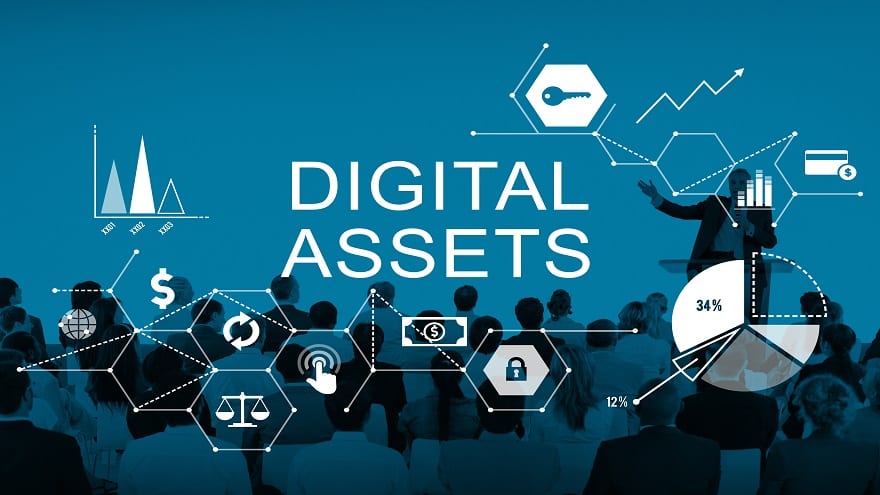Digital Assets: Why They’re So Important for Your Estate Plan

How long does it take to administer an estate?
There’s no simple answer to that.
Yet few things these days do more to increase the cost of and delay the time it takes to administer an estate…
…Than leaving an electronic mess for the executor and heirs to clean up.
And that’s exactly what many people do by not incorporating their digital assets and electronic lives in their estate plans.
Many people don’t realize the extent of their electronic and digital lives and the potential problems they’re leaving for others to deal with.
Estate planning law has mostly caught up to developments in technology, though it took longer than it should have.
Less than 10 years ago, providers of digital assets and services set their own policies on who was allowed access to a deceased person’s digital life.
To support their refusal to provide access or information to the estate or surviving family members, many providers cited a federal electronic privacy law making it a crime to access someone else’s online accounts.
Now, most states have enacted a form of the Uniform Fiduciary Access to Digital Assets Act. Generally, the law allows an executor to manage computer files, web domains and virtual currencies unless the will or other document specifically prohibits the access.
All the executor has to do is provide proof that he or she is authorized to act as executor.
But the law doesn’t allow the executor to access email, text messages, social media accounts and other digital assets without express permission in a will, trust, power of attorney, or other legal document or court order.
You probably don’t want your heirs to have to engage in legal battles for the right to access your various electronic assets or hire technology experts to crack them.
Your first step is to be clear in your will, trust and power of attorney who should have access to and management ability over each of the digital assets and accounts.
Without that express direction, there could be a lot of difficulty settling your estate, accessing assets, shutting off automatic payments and taking other actions.
Some people divide access to the accounts. Perhaps they want only a surviving spouse, other family member or friend to have full access to personal items, such as email, social media, a cellphone and perhaps other assets.
That person can forward any relevant information to the executor.
The executor is given full electronic access to financial accounts and other assets and accounts needed to settle the estate.
Other people name an executor they are comfortable giving access to and control over all the electronic assets.
Decide on the division, if any, that works best for you.
But that’s only the first and easiest step in digital estate planning.
There will still be a lot of problems for the executor or your heirs unless you take additional actions.
Here’s what I recommend.
You should create a comprehensive inventory of your digital life, and many people are surprised by the extent of this inventory.
A digital asset is any online account or service that is protected by log-in security.
Obvious digital assets are email, social media, message board accounts and subscriptions.
Your computer, computer files, files you store on “cloud accounts” and any web domains you own also are digital assets.
Online financial accounts, of course, are indeed digital assets. A smart phone and all the apps and other items on it are digital assets.
Medical records are being digitized and accessible online, making them part of your digital estate. Automatic payments still are an often-forgotten item in this process.
Make a list of all automatic payments, whether they are deducted from a financial account, charged to a payment card, or paid through some other means.
Remember that some payments are annual, so your list might not be complete after reviewing only one month’s automatic payments.
There are a number of hybrid assets, such as a brokerage account for which transactions can be made online, over the telephone, or in person.
Hybrid assets should be included in your digital inventory if you have activated the online or telephone access.
Your executor and heirs need a complete compilation of all your digital assets and accounts, including all the items listed above and any others you can think of.
Start with your smart phone.
This is important, because the best security policy now is to require two factor authorization for online accounts.
That means after entering the password, you have to enter a code that usually is sent in a text message to a cell phone.
Most of your digital life won’t be accessible without access to your phone.
Describe all the ways of accessing your smart phone.
For many, the initial access is biometric, such as a fingerprint or facial recognition.
Be sure your phone has an alternative secure way of accessing it, such as a password. Give clear instructions in your digital asset inventory.
Both Apple and Google have legacy contact features that allow you to designate who has access to your phone and other accounts with Apple or Google after you pass away.
Facebook (now Meta Platforms) also has such a feature. Be sure to use these in addition to regular estate planning tools.
In Part 2 next week, I’ll share more tips for incorporating digital assets into your estate plan, including a few surprises.
Editor’s Note: It bears repeating: Your executor needs to know all the details about your finances – which accounts you own, key facts about them, and where to find the paperwork. That’s why I created: To My Heirs: A Book of Financial Wishes and Instructions. All the key information about your accounts, assets, and other financial matters is in one place, so you won’t have to spend time hunting through files or papers for account numbers and contact information. Click here to get your copy.
![]()





